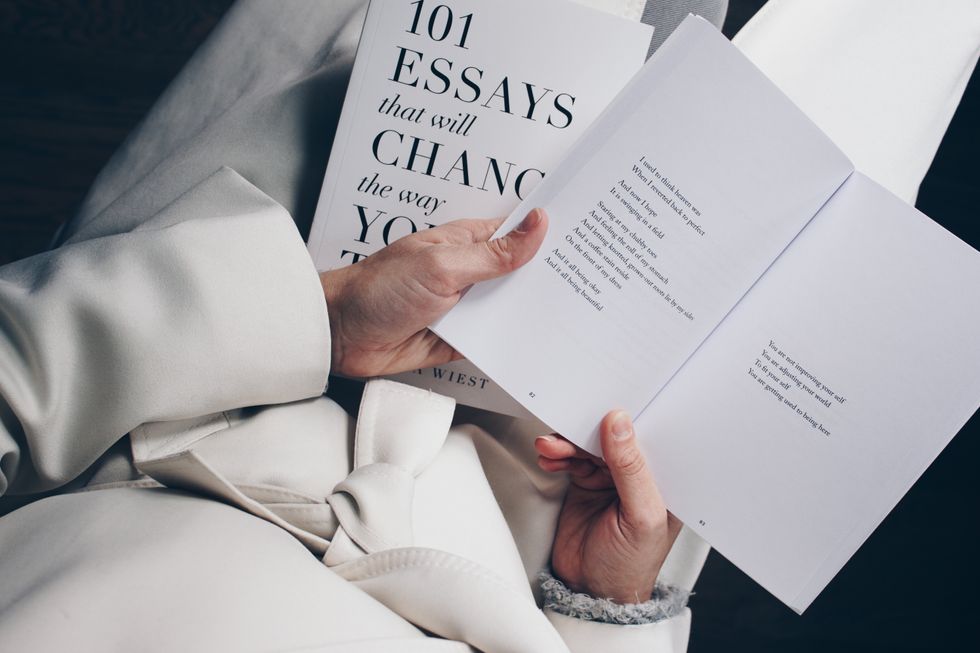Only one type of writing truly get me in touch with my emotions, and that is the personal essay. The rest of the time, I'm narrating somebodhy else's story.
With first-person fiction, especially. When I get in the zone it is like I'm sharing a headspace with someone who doesn't even exist. Emotions from God-knows-where (the Shadow Realm?) flow into my mind and out through my fingers onto the page.
My cowriter to my blog and I, when we want to express that we're feeling creatively charged about a certain character -- we always say that that character is really "talking." Of course it's metaphorical, but that's as close as you can get to describing the phenomena. It feels, sometimes, as though I have no control over the plot-line, that the story and characters have ideas of their own and I'm just there to put it into words.
My fiction-writing professor always says, when his students try to think too much, that "the story is smarter than the writer." It's a testament to the power of these things, I suppose. If you try to put too much of yourself into the story, to direct it into some shape or form, you'll just end up with terminal writer's block.
I'm finding this lack of self-insert with my journalism too, for obvious reasons. The focus there is to report the objective truth, to take as much of yourself as you can out of the story and put as much of your sources as you can into it. Your job is to stitch together the truth from the scraps of information you dig up; it's bad journalism if you put your own bias into it. You're not so much creating as relaying a truth.
So, then, where is there room in writing for true self-expression?
You'd think fiction is entirely that, self-expression; but, as I've shown, stories can grow so strong that they really become their own being. The story comes to you. With reporting, you go to the story. Where is there room for actually making your story?
The answer is the personal essay.
Hear me out. I'm not talking about the weird or melodramatic tales this New Yorker article mentions; frankly, I'm glad that nobody pays attention to stories about losing tampons anymore, because what do those stories teach us? Nothing. Nothing except proper tampon usage, I suppose, which we can all learn from simply reading the instructions. Those pieces are a genre of their own.
Powerful personal essays are those about hardships we've learned, about challenges we've been through. Their power lies in the thing that both fiction and journalism cannot coexist with: their non-objective connection with reality.
In a personal essay, I can talk about my own truth without anybody telling me it's 'too biased' or 'out of character.'. I can speak of coming out first as bisexual then as a lesbian, for example, and nobody gets to question the validity of those words because they are coming directly from the source. Journalism may be able to capture a true-to-life tale such as this, but at the end of the day we are not the person we are reporting about. We can reprint their words, but we are unable to do their story true justice, because to add any of our own emotion is to seize control of a story that isn't ours.
When we write personal essays-- essays just about ourselves-- we're not channeling some figment of our imagination, and we're not piecing together somebody else's truth. We are expressing our views on the world, the way we see it, we're showing the truths we have internalized and discovered.
They show us the human psyche in a way that fiction and journalism cannot.






















